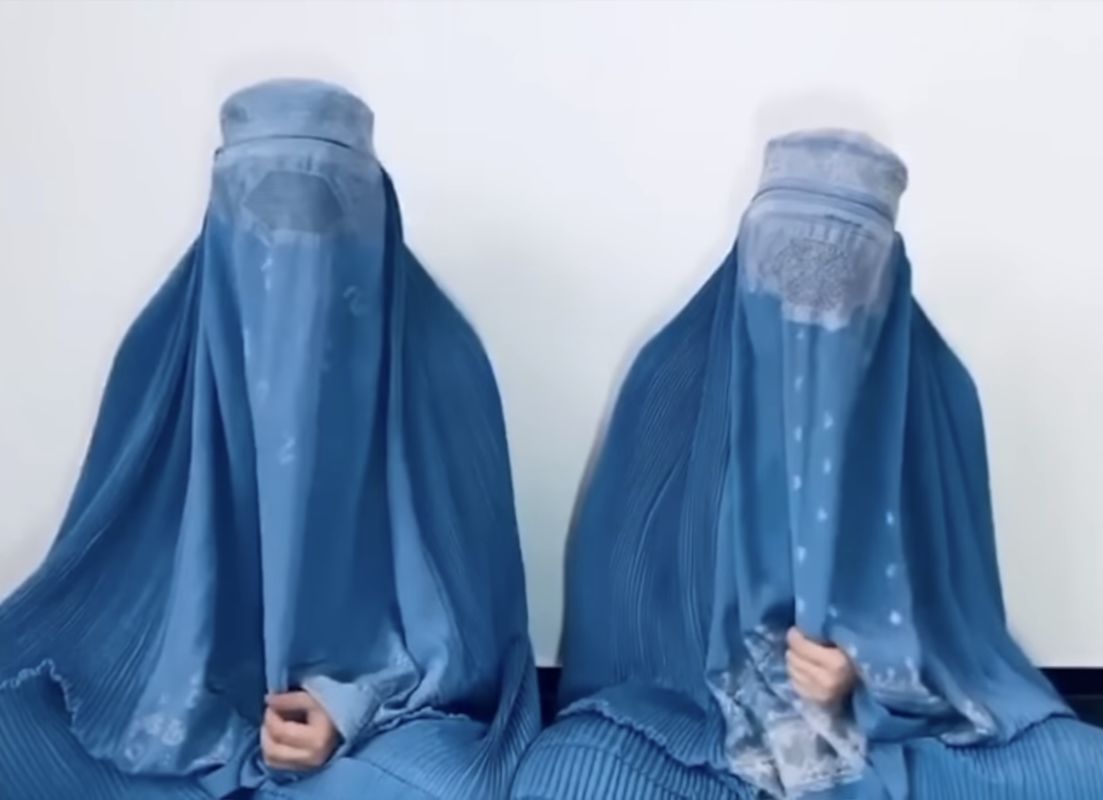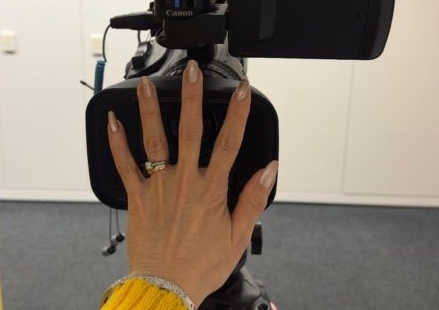Afghanistan women despair as Taliban starts enforcing harsher laws

This legislation, officially titled the "Law on the Propagation of Virtue and Prevention of Vice", imposes severe restrictions on women’s public and private lives. The international community, including human rights groups, has called for immediate action.
Afghanistan has seen a sharp deterioration in women’s rights following the Taliban’s enactment of a new morality law. This legislation, officially titled the “Law on the Propagation of Virtue and Prevention of Vice”, imposes severe restrictions on women’s public and private lives, and consolidates the power of the Taliban’s religious police.
Afghanistan women, already facing heavy restrictions under Taliban rule, now fear the suppression of even their limited freedoms. The international community, including human rights groups, has called for immediate action, warning of human rights violations amounting to gender persecution. Afghanistan women are suffering severe depression as a result of the Taliban’s implementation of harsh regulations and a fresh wave of repression.
The new morality law : a sweeping crackdown on personal freedoms
The “Law on the Propagation of Virtue and Prevention of Vice”, officially adopted in August 2024, runs over 100 pages and imposes stringent new rules governing the behaviour of Afghanistan citizens. However, Afghanistan women are the primary targets of this law. Under the new rules, women are prohibited from raising their voices in public, reciting poetry, or singing outside their homes. They are barred from looking at men who are not their husbands or immediate relatives and must cover the lower half of their faces, adding to the already strict dress code.
While women bear the brunt of the new restrictions, the law also targets other segments of Afghanistan society. Premarital sex and homosexuality are criminalized, along with activities deemed “un-Islamic,” such as drinking alcohol, gambling, or celebrating non-Muslim holidays like Norouz, the Persian New Year. Men are prohibited from shaving their beards, wearing Western clothing such as neckties, or getting haircuts that “violate Islamic Shari’a law.”
The law gives unprecedented powers to the Ministry for the Promotion of Virtue and Prevention of Vice, which oversees the Taliban’s notorious morality police. Officers, now a common presence on the streets of Kabul and other cities, are tasked with enforcing a detailed code of conduct, including monitoring women’s speech, dress, hijab, and behavior in public spaces. Women face harassment and possible detention for infractions as minor as laughing, speaking aloud, or interacting with men in public spaces such as car parks or markets.
The morality police have the authority to detain offenders for up to three days and issue punishments without trial, heightening fears of arbitrary detentions. More than 13,000 people in Afghanistan have reportedly been detained in the past year for violating these morality laws. Offenders can also face fines and confiscation of property for repeat offenses.
The impact on Afghanistan women : despair and fear
For Afghanistan women, the new law represents a final blow to their dwindling freedoms. The new regulations have exacerbated the already harsh realities of daily life under Taliban rule. Many women had clung to small liberties, such as the ability to speak in public or work in certain sectors like healthcare and education. Now, even these small freedoms are being stripped away.
“Now, with the new law, there is no hope left.”
Najiba, a 22-year-old university student, expressed her despair, saying to the media latitudes journalist on the phone, that all hope for a better future is finished. “There are two groups within the Taliban,” she said. “Now, with the new law, there is no hope left.” Like many Afghanistan women, Najiba feels trapped and hopeless, and suicide is becoming a grim possibility for some.
Women like Sabira, a 35-year-old mother of seven and the sole breadwinner for her family, talked with Media Latitueds journalist by phone: “I am worried that their ability to provide for their families is at risk”. While the Taliban has allowed some women like doctors and nurses to continue working in selected sectors, the new restrictions threaten to push women further into isolation and poverty.

Cultural and religious justifications : a mask for oppression
The Taliban continues to frame these laws as necessary to protect Afghanistan’s culture and Islamic values. Taliban officials, including deputy spokesman Hamdullah Fitrat, argue that the values outlined in the law reflect Afghanistan’s societal norms and should be respected by the international community. Fitrat insists that these laws promote human dignity and that restrictions on women are designed for their protection.
However, women’s rights activists and religious scholars argue that many of these new rules are not grounded in Islam. Afghanistan women’s rights advocates have pointed out that the Quran does not mandate the extreme limitations on education, dress, or public presence that the Taliban has imposed. Many of the Taliban’s rules, including the prohibition on women raising their voices, are rooted in Pashtun tribal customs rather than Islamic teachings.
Heather Barr, Associate Director of women’s rights at Human Rights Watch, described the law as a “serious escalation” of already repressive policies. She warned that Afghanistan is sliding into “ever more hellish conditions” for women and girls, with the new law representing the formal institutionalization of deeply harmful practices.
Broader implications : targeting minorities and criminalizing behaviour
The law even extends to media and published materials, banning any representation of human figures, which raises concerns about how essential documents like identity cards will be handled.
Religious minorities and LGBTQ+ individuals face increased persecution under the new law, which forbids any association with non-believers and imposes harsh penalties for perceived infractions of religious conduct. The European Union (EU) has strongly condemned the legislation, stating that it amounts to systemic gender persecution, which could be classified as a crime against humanity.
International reactions and calls for action
The international community has reacted with alarm to the new restrictions. The EU issued a statement describing the Taliban’s actions as “systemic abuses” and warned that they represent a significant barrier to any normalization of relations between the Taliban and the rest of the world. These restrictions, according to the EU, create “another self-imposed obstacle” to the Taliban’s recognition by the international community.
The United Nations has expressed deep concern over the new law, with Ravina Shamdasani, a spokeswoman for the UN Human Rights Office, calling it a “distressing vision for Afghanistan’s future”. Roza Otunbaeva, head of the UN Assistance Mission in Afghanistan, added that the law significantly broadens the power of the morality police to detain citizens based on a vague and expansive list of infractions.
Despite these concerns, diplomatic efforts to engage with the Taliban have been limited. In July, Taliban representatives attended UN-led talks on engagement with the Taliban for the first time. However, Afghanistan civil society and women’s rights groups were excluded from the discussions at the insistence of the Taliban, raising concerns about the efficacy of any such engagement.
The Taliban has introduced new rules banning live political broadcasts and restricting guest appearances on media programs to those pre-approved by the authorities. The Taliban Ministry of Information and Culture announced these directives on September 21 at a meeting with media outlet managers, according to the Afghanistan Journalists’ Centre (AFJC). Political discussions must now be pre-recorded, and any guest outside the sanctioned list requires prior approval. Criticism of Taliban laws is also limited unless backed by verifiable evidence.
These measures further tighten control over the press, following the Virtue and Vice law. Since the Taliban’s return to power, over half of Afghanistan’s media outlets have shut down, and female journalists face severe restrictions. The AFJC has condemned the new rules, calling for the protection of independent journalism.
The enactment of the “Law on the Propagation of Virtue and Prevention of Vice” represents a grim new chapter in the Taliban’s rule over Afghanistan. Women’s rights have been all but obliterated, with the new morality law serving as a formal codification of Taliban repression. As women from Afghanistan continue to resist in small but courageous ways, such as singing songs of protest, their future remains uncertain. The international community faces a critical challenge in responding to these escalating abuses, as Afghanistan continues its slide into deeper isolation and oppression.




